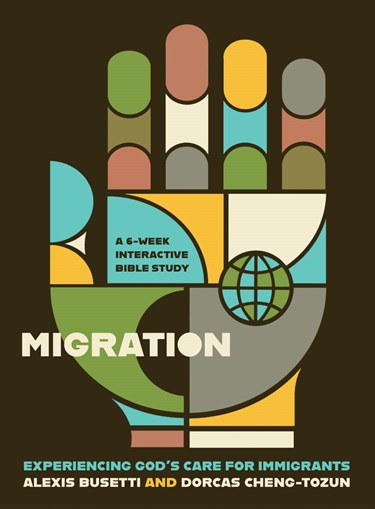How to Love Our Immigrant Neighbors in a Time of Terror
How to Love Our Immigrant Neighbors in a Time of Terror
By Dorcas Cheng-Tozun
“Terrible things are happening outside. At any time of night and day, poor helpless people are being dragged out of their homes.”
Anne Frank, The Diary of a Young Girl, January 13, 1943
It is a terrifying time to be a non-citizen in the United States. Across the country, the daily immigration arrest rate has more than doubled since the start of this administration. Each day, news reports tell us of individuals and families taken from their homes, their workplaces, their places of worship, and even their immigration hearings by armed, masked men who oftentimes refuse to identify themselves as Immigration and Customs Enforcement (ICE) agents.
Adults, teens, and even children, the vast majority of whom have no criminal record, are being held in abhorrent conditions without legal representation or due process. Some are even being sent to countries to which they have no connection, often directly into substandard prisons, a cruel practice recently upheld by the US Supreme Court.
And all because they are refugees, asylum seekers, international students, foreign workers, or undocumented immigrants. Some with legal status have had their status suddenly stripped away and were subsequently detained. Green card holders, who have taken every required step toward legal residency over the course of years, are being deprived of their rights. Even US citizens have been racially profiled and detained by ICE in their sweeping, sometimes violent raids.
As shocking as recent stories and images have been, such events are unfortunately not a new storyline for humanity. Immigrants and foreigners—often displaced from their homelands by violence, oppression, natural disasters, or economic need—have always been vulnerable, susceptible to exploitation, scapegoating, and violence in new lands.
God knows this, and so his repeated instruction to his people throughout Scripture is to love and care for the foreigner, the sojourner, and the stranger. As the Lord says to the Israelites in Leviticus 19:33-34, “When a stranger sojourns with you in your land, you shall not do him wrong. You shall treat the stranger who sojourns with you as the native among you, and you shall love him as yourself, for you were strangers in the land of Egypt: I am the Lord your God” (ESV).
The story of God’s people cannot be told without including the story of immigrants and those who receive them. Biblical heroes like Abraham, Moses, David, Ruth, Paul, and Jesus himself were deeply shaped by their experiences traveling to new places as they depended on God along the way and built friendships and families across cultural divides.
In this season of particular vulnerability for our immigrant neighbors, the people of God—especially those of us fortunate enough to be citizens—can fulfill our biblical mandate by being sources of comfort, refuge, and advocacy.
Here are three practical steps you can take to love and care for immigrants, no matter their legal status, in your community:
1. Check in with your immigrant friends and neighbors, and provide practical support as needed.
Many immigrants are too terrified now to go to work, school, or even church. Some refuse to leave their homes at all. If you know any immigrants in your circles of concern, consider reaching out and checking in. Ask them how they’re doing, how you can be praying for them, and if there’s anything they need. Consider organizing grocery or meal deliveries, accompanying them to medical or legal appointments, or connecting them to legal counsel or support.
2. Get trained to be an ally.
There are many resources available to help us understand the legal rights of documented and undocumented immigrants. Educating yourself on how the immigration process works, what ICE can or cannot do, and appropriate due process allows you to be a valuable resource for others who may desperately need this information. You can also take bystander intervention training, which provides practical, nonviolent strategies for intervening if you see an immigrant being harassed or treated unjustly.
3. Know how to contact your local rapid response network or other advocacy groups or organizations.
Many communities have organized rapid response networks, which can be contacted whenever you witness ICE activity happening or if someone you know has been detained. When a call is placed to a rapid response network, a team of trained advocates and lawyers quickly move to protect the immigrants at risk. Find the number for your nearest rapid response network, program it into your phone, and share it with others.
You can also connect with a local or national immigrant advocacy organization to find additional opportunities to offer support.
“How Would God Have Us Care for Immigrants?”
Article from one of the authors of Migration: Experiencing God’s Care for Immigrants - A 6-Week Interactive Bible Study, a Made for PAX Bible Study by Alexis Busetti and Dorcas Cheng-Tozun
Dorcas Cheng-Tozun is an award-winning writer and a nonprofit and social enterprise professional. She is co-author of Migration: Experiencing God’s Care for Immigrants, a new Bible study, and the author of Social Justice for the Sensitive Soul: How to Change the World in Quiet Ways.
The views expressed in this blog are those of the author and do not necessarily reflect those of the Jude 3 Project. Content is for informational purposes only. Some posts may feature guest contributors. To inquire about writing for Jude 3, contact us at blog@jude3project.com.


